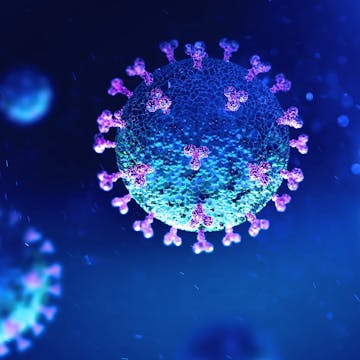
We live in a very amazing and disturbing time. No one could have imagined that a single phenomenon in the field of biology (mutation of the virus and its transition to a new organism) would cause such large-scale changes in the life of everyone, the economy and politics of almost all countries of the world.
The purpose of our course is to provide fundamental knowledge in one of the fields of microbiology and physiology, concerning the nature of viruses and their interaction with humans, with an emphasis on the new SARS-CoV2 virus.
During a difficult situation in the world associated with the spread of SARS-CoV2 coronaviruses, more...
Read more
Good to know
Save this course
Reviews summary
Well-received course on sars-cov-2
Activities
Career center
Clinical Laboratory Scientist
Pathologist
Epidemiologist
Microbiologist
Veterinarian
Physician Assistant
Registered Nurse
Research Scientist
Science Teacher
Public Health Nurse
Biological Science Technician
Pharmacist
Surgeon
Medical Technologist
Physician
Reading list
Share
Similar courses
OpenCourser helps millions of learners each year. People visit us to learn workspace skills, ace their exams, and nurture their curiosity.
Our extensive catalog contains over 50,000 courses and twice as many books. Browse by search, by topic, or even by career interests. We'll match you to the right resources quickly.
Find this site helpful? Tell a friend about us.
We're supported by our community of learners. When you purchase or subscribe to courses and programs or purchase books, we may earn a commission from our partners.
Your purchases help us maintain our catalog and keep our servers humming without ads.
Thank you for supporting OpenCourser.


